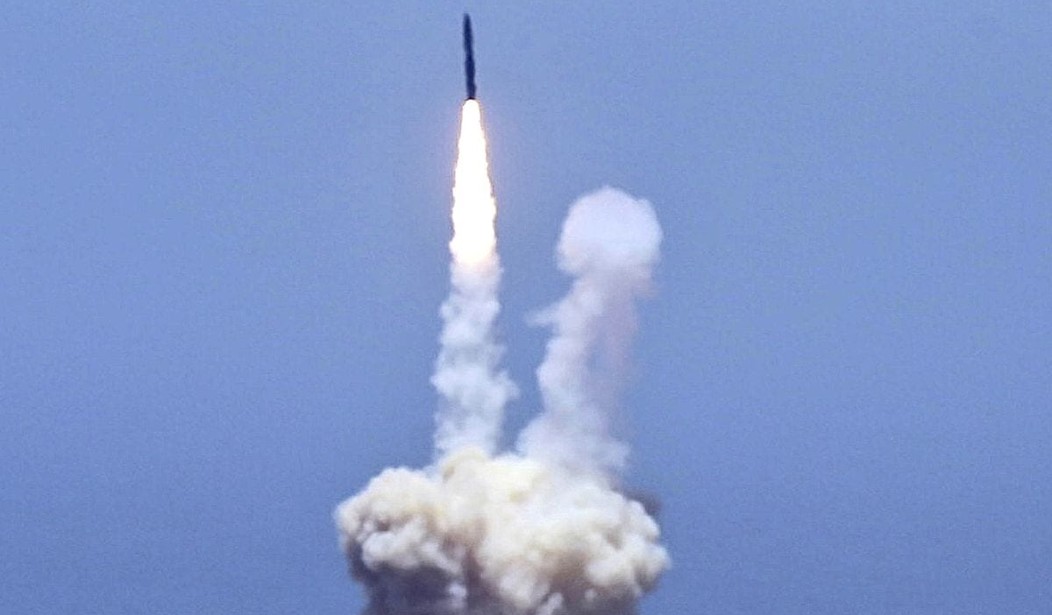WASHINGTON – Since authorizing military force against the perpetrators of 9/11 in 2001, Congress has largely abdicated its responsibility over warfare, casting blame on the executive branch and removing its fingerprints from the issue, two senators from across the aisle agreed Wednesday.
“We’re pretty good at avoiding tough issues in Congress,” Sen. Tim Kaine (D-Va.) said at the Wilson Center.
The former governor of Virginia and Hillary Clinton’s running mate in 2016 appeared alongside Sen. Jeff Flake (R-Ariz.), who agreed that the status quo on warfare authorization needs to be adjusted to strike a better balance between executive and legislative power.
Kaine and Flake, both members of the Senate Foreign Relations Committee, in May introduced a resolution offering an updated Authorization for the Use of Military Force. The last AUMFs were signed in 2001 and 2002, authorizing force against 9/11 attackers and subversive forces in Iraq, respectively. Those guidelines have been used in carrying out military activity in 14 different countries.
Flake, noting 16 years have passed since the start of the conflict in Iraq, pointed out that 300 of the current 435 representatives in the House were not in office at the time of the 2001 war authorization, and 77 senators have never voted on a war authorization bill.
“That’s simply not right,” Flake said.
Kaine said that the lack of modern strategy from Congress has resulted in “zombie” warfare, with seemingly endless conflict. The Virginia lawmaker said that one key issue is that the U.S. must grapple with modern enemies – non-state terror groups like al-Qaeda, ISIS or the Taliban who remain threats indefinitely.
The newest version of the AUMF provides specific definitions for those three enemies, and it also includes a provision for adding associated forces with congressional discretion. The process, according to Kaine, is similar to State Department guidelines for adding terrorist organizations to watch lists. The updated AUMF, which would allow the directives from 2001 and 2002 to expire, also carries a five-year sunset, with the ability for Congress to reauthorize.
Marine Corps Gen. Joseph Dunford and Defense Secretary James Mattis have both recommended that the Trump administration update the AUMF. This has support from Rep. Barbara Lee (D-Calif.), a far-left-leaning lawmaker who was the lone dissenting vote against the 2001 AUMF.
“That shows there’s some increasing sense of unease and disquiet about the status quo,” Kaine said of Dunford, Mattis and Lee. “We’re standing on really shaky ground right now.”
Though there is consensus among Congress for the need to eradicate ISIS, there is much ambiguity surrounding legal grounds under which the president can use military force. Flake and Kaine agreed that any military authorization needs broad, bipartisan support.
“I think that the only thing worse than not having a new AUMF, or a relevant AUMF, is having a completely partisan product and to pass something out of the House and the Senate with just one party,” Flake said. “I think that would be devastating.”
Flake and Kaine’s AUMF provides a process that allows Congress to decide which groups and individuals are considered to be associated with ISIS, al-Qaeda and the Taliban, and it also provides guidelines for where fighting can occur outside Afghanistan, Syria, Iraq, Yemen, Libya, and Somalia. The directive also requires the White House to provide Congress with a report detailing strategy for combating ISIS, al-Qaeda and the Taliban.









Join the conversation as a VIP Member